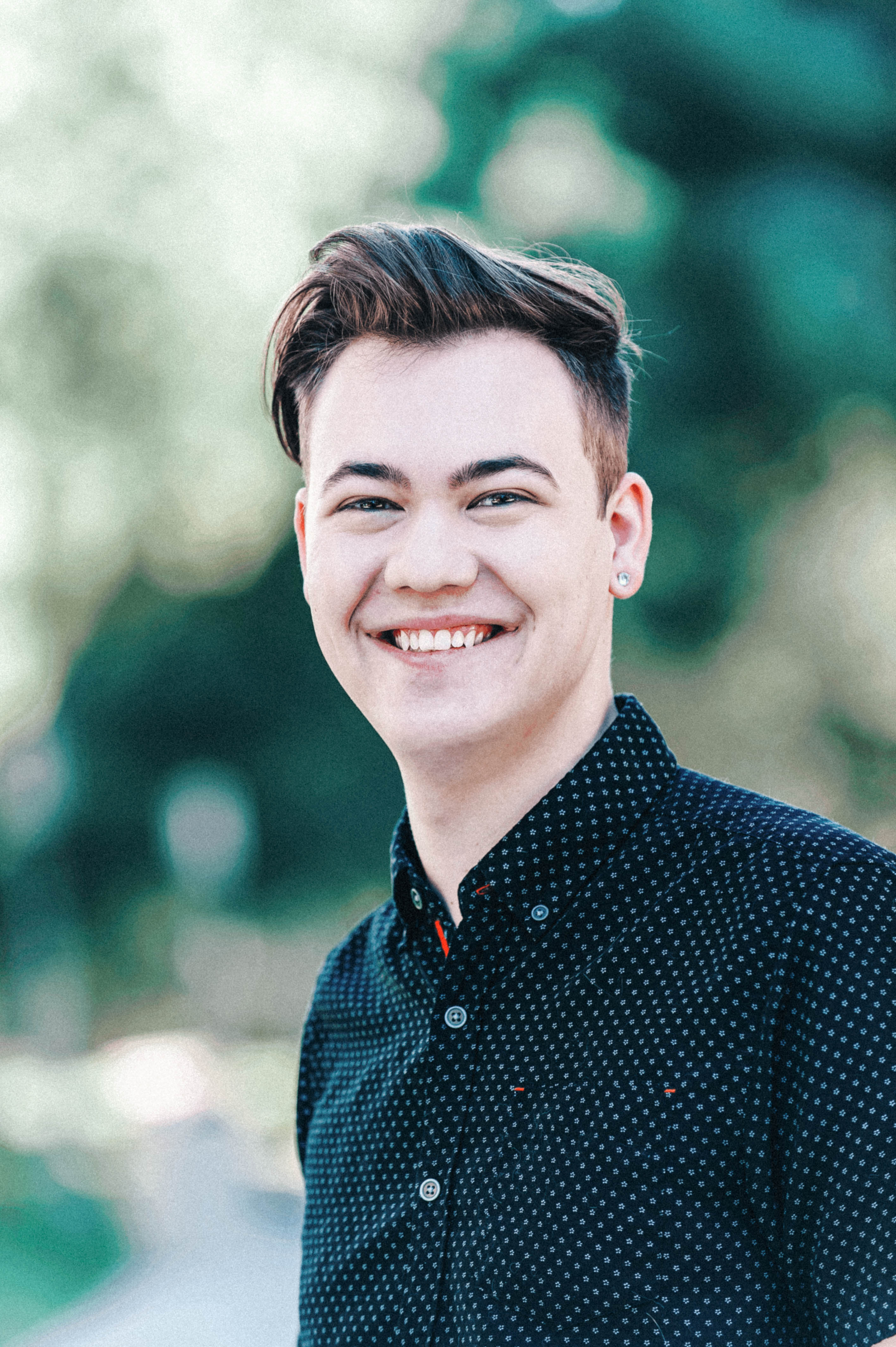Undergrad helps in hunt for coronavirus genetic mutations

Before April of last year, T.J. Cross didn't know how to code on a computer. Now, he's writing code that's helping researchers find coronavirus genetic mutations.
T.J. Cross is tired of the smell of cat litter boxes wafting through the on-campus apartment he shares with his boyfriend and two cats, Goose and Duck. But he endures it day after day because the coronavirus pandemic keeps him indoors, and because he’s spent the better part of the past year indoors helping Professor Rachel Martin of the UCI Department of Chemistry hunt for mutations in the genetic code of coronavirus. The genes he’s looking for, Cross explained, are involved in the replication of coronavirus after it infects someone. “I just started collecting sequences, and I’ve been doing that since March,” said Cross, who approached Martin about wanting to work in her lab when he was in her Chemical Biology class during winter quarter, just before the pandemic hit. Cross’ work, Martin explained, involves crafting code that helps computers quickly seek out mutations involved in the virus’ replication cycle, and it’s helped accelerate her lab’s search for mutations (computations now sometimes take only “two minutes as opposed to eight hours,” said Cross, who had little idea how to code before April) — something Martin thinks could one day help in the development of drugs that keep coronavirus from replicating once it’s inside a host. Nowadays, Cross’ work is giving something else a boost: after applying to graduate school this fall, Cross, who started his chemistry career as an undergraduate at Cal Poly Pomona, just gained admission to the Ph.D. program in Chemistry and Biochemistry at UCLA, where he’ll start work on computational chemistry later this year. He’ll be working on something called coarse-grained molecular modeling, which he described as a speedy way of modeling the kinds of molecules he’s modeling now with Martin. “Although I now consider myself an expert in coarse-grained cat litter, I’m super excited to learn more about coarse-grained molecular modeling at UCLA,” Cross quipped.
